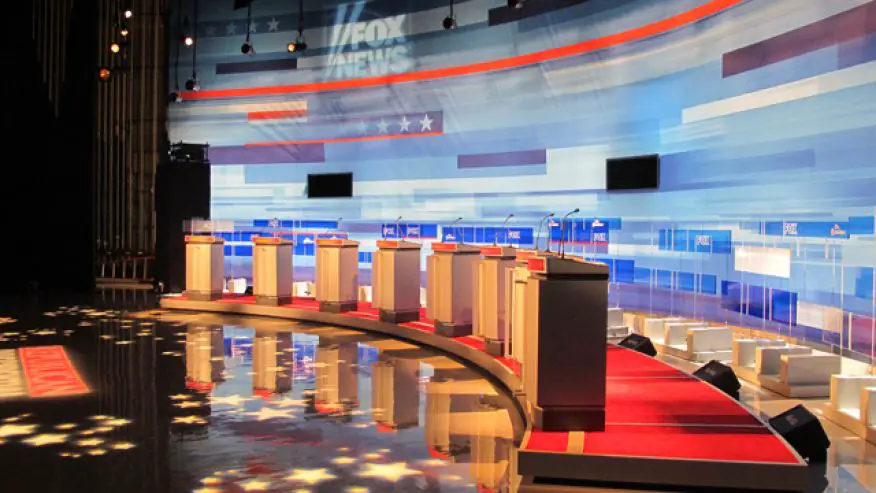As you likely know, the first Republican debate, sponsored by Fox News, is coming up on August 6, 2015. Fox is using an average of five national polls to determine which ten Republican candidates will appear on stage. Given how the polling is currently shaking out, we can begin to see what the candidate list may look like.
According to analysis from POLITICO, there are at least three candidates in the safe area:
Very Likely
1) Jeb Bush
2) Scott Walker
3) Marco Rubio
Bush, Walker, and Rubio, given recent polling trends, are all-but guaranteed a spot on the stage given how well they’re doing nationally. The remaining seven spots are still up for grabs and here is a possibility of how they shake out. Some of this is considering the current RealClearPolitics average as well as analysis from the aforementioned POLITICO story.
Likely
4) Ben Carson
5) Donald Trump
Carson has displayed staying power and continues to hover pretty strongly in national polls. Donald Trump has only continued to increase his polling strength since his June announcement and the two of them are likely to be on stage in Cleveland.
Toss-up
6) Rand Paul
7) Mike Huckabee
8) Ted Cruz
9) Rick Perry
10) Chris Christie
—– Cut-off—–
11) Rick Santorum
12) Carly Fiorina
13) John Kasich
Unlikely
14) Bobby Jindal
15) Lindsey Graham
16) George Pataki
In case of a tie for the tenth spot, an eleventh spot will be added to accommodate another candidate.
As you can see, the “toss-up” list is lengthy and we won’t know until days before the debate which candidates can crack the top ten. POLITICO makes a good argument that John Kasich, with a planned 2016 announcement on July 21, stands a good chance of getting enough of a bounce to clench the tenth spot if he’s lucky.
Seeing Rand Paul’s name in the “toss-up” list, based on his polling average, is pretty stunning given how strongly he was running just six months ago. Since that time, he has taken a lot of incoming fire from the national security hawks and has hit somewhat of a ceiling in national polls. I’d be inclined to put him in the “Likely” list but his polling still leaves the possibility he could be bumped, though I very much doubt it. In reality, it is all dependent on which polls are used to generate the average. The same holds for Ted Cruz, who I also expect to see on the debate stage.
POLITICO mentions this and brings up the pertinent questions surrounding the currently-unknown selection of polls Fox will use to create the list:
While Fox News hasn’t outlined the exact criteria, the cable network says it will pick the top 10 from an “average of the five most recent national polls, as recognized by Fox News leading up to August 4th at 5 PM/ET,” Fox News Executive Vice President Michael Clemente announced in May. “Such polling must be conducted by major, nationally recognized organizations that use standard methodological techniques.”
Because Fox has been vague about the criteria, it’s unclear which polls will be included. Does “standard methodological techniques” mean the polls must be conducted by live telephone interviewers? Automated phone polls wouldn’t help cull the field, since they can ask about only 10 candidates in the first place. But most observers think Fox is precluding polls conducted via the Web from being part of the average.
Will the network use only its own surveys and those from the other national news organizations (such as the ABC News/Washington Post and NBC News/Wall Street Journal polls)? Or will that also include polls from academic institutions with a national footprint?
The schools with major polling arms aren’t even clear whether their surveys will be part of the average.
Since we don’t know which polls will be used, as Fox hasn’t released that information, the lineup will not be finalized until possibly the day before the debate.
Donate Now to Support Election Central
- Help defend independent journalism
- Directly support this website and our efforts
